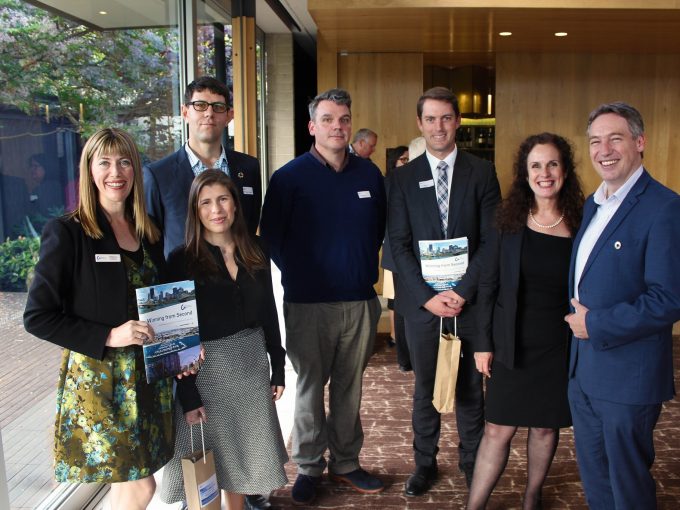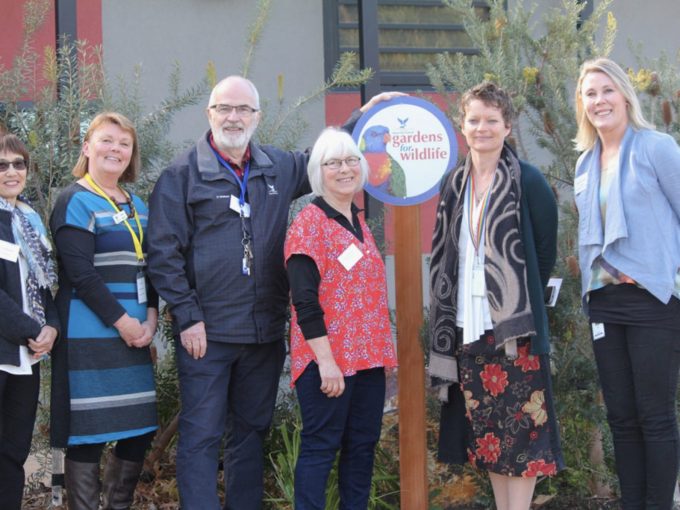RMIT has hosted delegates from Bangkok Metropolitan Government, with the University’s urban experts helping guide innovative solutions for livability challenges facing the Thai capital.
Coordinated by the UN Global Compact – Cities Programme, RMIT and AECOM, for the first time, organisations across the state – including the Victorian Government, City West Water and Resilient Melbourne – came together to deliver the Bangkok Metropolitan Government (BMA) Urban and Resilience Program for 22 Bangkok city leaders.
The two-week BMA Urban and Resilience Program focused on empowering Bangkok to tackle livability through customised seminars, workshops and site visits.
The program explores solutions within the five components of livability identified in Bangkok’s 20-year development plan: healthcare, infrastructure, culture and environment, education, stability and an extra module on creative economic education.
Experts from across RMIT’s urban and planning fields shared their research and expertise on placemaking, spatial mapping, metro planning, and culture and development, as well as leading hands-on capacity development workshops to inspire Bangkok’s leaders on ways to tackle the livability challenges facing them.
Welcoming the delegation to Melbourne, Deputy Vice-Chancellor Research and Innovation and Vice-President Professor Calum Drummond said he was pleased to see so many of RMIT specialist researchers developing and delivering seminars for the program.
“At RMIT we are well known for working in partnership – in cross-disciplinary teams, with business and government and not-for-profit organisations,” he said.
“We have recently launched our Enabling Capability Platforms (ECP), which connect researchers from multiple disciplines and from across all RMIT colleges under a thematic umbrella.
“This provides a vehicle that allows RMIT to deploy its areas of research excellence to comprehensively address critical local, national, regional and global challenges and capture emerging opportunities.
“We also proudly host the UN Global Compact – Cities Programme, which as an international United Nations program, is like a global ECP for RMIT – connecting the university, and our academics and students, with partners in cities, universities and other sectors to deliver research and capacity development that create better cities.”
Founded on a platform of cross-sectoral collaboration between local government, civil society and the private sector, the UN Global Compact – Cities Programme has been instrumental for the university in facilitating knowledge exchange and capability development opportunities for planners in land use, health, transport, finance and infrastructure, to explore innovative and integrative urban development strategies.
UN Global Compact – Cities Programme Chair Michael Nolan said work on this program is shaped by a clear understanding of the value and application of resilience and livability strategies to city government policy and planning.
“Having Bangkok government and local experts from government, civil society and the private sector coming together to tackle cities challenges is an immense opportunity for both cities to learn from each other and for us to support Bangkok developing tools and strategies to turn challenges into opportunities,” he said.
“This program has led to the Healthy Liveable Cities Group, hosted by our partners at the RMIT Centre for Urban Research, winning a $20,000 VicHealth grant to test and improve liveability tools and outcomes for Bangkok.”
BMA Deputy Director-General of Strategy and Evaluation Department, Pathan Seerawsankhan, said he was confident the training will lead to opportunities for a more resilient and livable Bangkok.
“We have 50 districts in Bangkok and we need cooperation between them to deliver strategies to make Bangkok more resilient and deliver a better quality of life,” he said.
“This program is opening the minds of the 22 BMA delegates here – who come from multiple departments – to new ideas, to learn how to integrate and apply them at home.”
Story: Chanel Bearder





